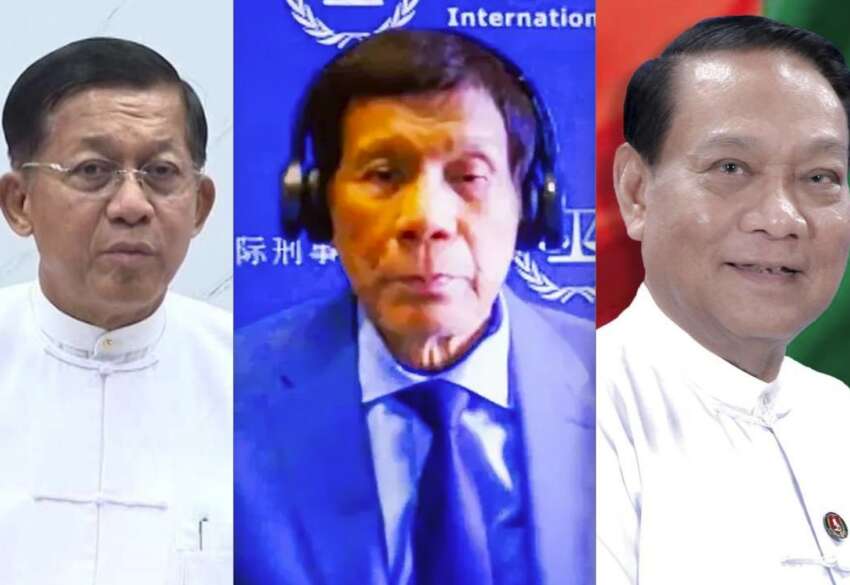
The International Criminal Court’s (ICC) arrest and investigation of former Philippine President Duterte has caused significant concern among Myanmar’s military council leader Min Aung Hlaing and other military leaders in Naypyidaw. The chairman of the military council’s Union Solidarity and Development Party, Khin Yi, has publicly criticized the ICC’s actions as erroneous. These comments were broadcast through military-affiliated Telegram channels, reflecting growing anxiety within the military leadership.
Khin Yi argued that the ICC’s investigation of Duterte on charges of crimes against humanity at The Hague headquarters in the Netherlands constitutes an infringement on national sovereignty. He specifically criticized the ICC’s jurisdiction over non-member states as inappropriate and claimed that the court’s actions demonstrate a double standard, primarily affecting African and Asian nations while having little impact on certain other countries. He emphasized that law enforcement and human rights considerations must be balanced against national sovereignty, suggesting that a one-sided approach to human rights enforcement is impractical in real-world governance.
The March 11 arrest and transfer of Duterte to the ICC by Philippine authorities has particularly rattled Myanmar’s military leadership, coming at a time when the ICC is reportedly preparing arrest warrants for Min Aung Hlaing himself. Sources indicate that Min Aung Hlaing has been requesting reports on potential scenarios following Duterte’s arrest, highlighting the military council’s growing concern about international accountability. The case against Duterte centers on allegations of widespread killings during his anti-drug campaign in the Philippines, drawing parallels to the international community’s concerns about human rights violations in Myanmar under military rule. The military leadership’s reaction to Duterte’s arrest reveals their heightened awareness of potential international legal consequences for their actions, particularly as the ICC continues to expand its reach in prosecuting alleged perpetrators of crimes against humanity.



